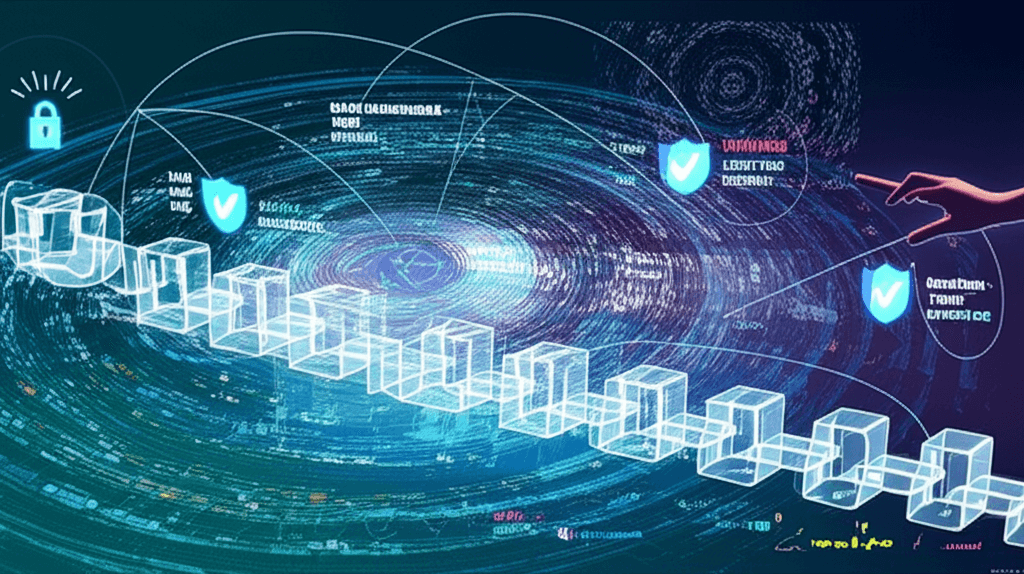Decentralized AI 'Organism' Rollup News Battles Online Disinformation
Discover Rollup News: AI agents, human insight, and blockchain converge to decentralize fact-checking and rebuild digital trust.
August 28, 2025

In a digital landscape rife with misinformation, a novel approach to fact-checking is emerging from the convergence of artificial intelligence and decentralised technologies. Swarm Network, a platform focused on developing protocols for AI agents, has introduced a tool named Rollup News, which it describes not as a simple application, but as a decentralised "organism" of AI agents designed to collectively battle disinformation.[1] This system represents a significant departure from traditional, centralised fact-checking models, proposing a future where truth is a verifiable, community-driven public good. The early performance of Rollup News, which has reportedly attracted over 128,000 users and verified more than three million social media posts, suggests a growing interest in alternative methods for establishing information integrity online.[2]
The core of Rollup News operates on what Swarm Network calls its Multi-Agent Collaboration Framework.[3] This system is designed to orchestrate numerous individual AI agents, organising them into hierarchical structures known as clusters and swarms to tackle large-scale information verification.[4] The process is user-initiated; on the social media platform X, formerly Twitter, a user can tag the "@Rollup_News" handle on a post they wish to have verified.[1] This action triggers a swarm of AI agents to analyse the content by breaking it down into individual, or "atomic," claims. These agents then scour a wide range of sources, including traditional web data and blockchain records, to gather and cross-reference relevant information.[1][5] Once a consensus is reached among the agents, the verification result is recorded on a public blockchain, creating a transparent and immutable record of the fact-check.[6] The outcome is then delivered back to the user on social media with a straightforward verdict, such as "Likely True," "Questionable," or "Likely False," complete with sources for public scrutiny.[1]
A critical component of the Swarm Network's strategy is the integration of human intelligence with its AI agents, a concept it terms "AI-human symbiosis."[5] While the AI agents are responsible for the heavy lifting of rapid data collection and preliminary analysis, the system incorporates human verifiers to address the nuances and cultural context that algorithms often miss.[1] This hybrid model aims to combine the scale and speed of artificial intelligence with the contextual judgment of human experts, thereby creating a more robust and reliable verification process.[7] This approach directly addresses a common criticism of purely AI-driven content moderation, which can lack the subtlety required for complex claims.[8] The entire ecosystem is underpinned by a "Truth Protocol" that leverages blockchain technology to ensure that all verification records are permanent and auditable, aiming to build a new standard for trust and transparency in digital information.[9][10]
The implications of such a decentralised fact-checking model for the AI and news industries are profound. By moving away from a centralised authority, Rollup News aims to create a more resilient and censorship-resistant system for verifying information.[11] Traditional fact-checking organisations, while crucial, can be bottlenecks in the fast-paced world of social media. A decentralised network of AI agents, in theory, can scale more effectively to meet the deluge of online content.[12] Furthermore, the economic model is novel, built around "Agent Licenses" structured as Non-Fungible Tokens (NFTs).[10] Individuals who purchase these licenses can operate AI agents on the network and earn rewards for their contribution to maintaining its integrity, creating an incentivised community dedicated to accuracy.[7][13] This "Economy for Truth" seeks to turn accurate information into a shared, and potentially profitable, commodity.[7]
Despite its innovative design and promising early metrics, the long-term viability and effectiveness of the decentralised model face several challenges. The success of the network is heavily dependent on the quality and diversity of its AI agents and human participants to avoid creating an echo chamber of its own. As with any AI system, the potential for algorithmic bias based on the data the agents are trained on remains a significant concern.[4] Moreover, the reliance on blockchain technology introduces hurdles such as scalability and efficiency, which are known challenges for decentralised networks.[1][14] While the system's transparency is a key feature, its ultimate impact will hinge on achieving widespread adoption and being perceived as a neutral and trustworthy arbiter of fact in a polarised information environment. The project's success may therefore depend on its ability to prove that a decentralised collective can be more effective at discerning truth than the centralised institutions that have traditionally held that responsibility.
In conclusion, Swarm Network's Rollup News presents a compelling vision for the future of combating disinformation. By harnessing a decentralised swarm of AI agents, moderated by human insight and secured by blockchain technology, it offers a scalable and transparent alternative to conventional fact-checking. The platform's early traction indicates a public appetite for new tools that can bring clarity to a chaotic digital world.[2] However, the model is not without its potential pitfalls, including the inherent challenges of AI bias, blockchain scalability, and the difficulty of building broad-based trust. The trajectory of Rollup News will be a critical case study in whether a decentralised, community-powered "organism" can effectively create a verifiable and shared sense of truth online, potentially reshaping the very infrastructure of trust in the digital age.[5]
Sources
[1]
[2]
[3]
[8]
[10]
[11]
[12]
[13]
[14]